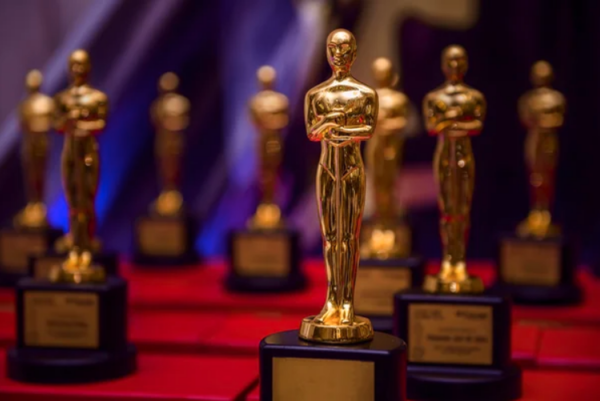When asked about an award that celebrates success in the arts, it is almost unanimously agreed that the Academy Awards, more commonly known as the Oscars, tops the list as the most prestigious. From iconic wins like Tom Hanks’ Best Actor award for Forrest Gump in 1994 to historical moments like Parasite becoming the first film in a non-English language to win Best Picture in 2020, the Oscars have become a welcome yearly event to celebrate an important part of our culture. Though the main purpose of the Oscars is to commemorate filmography, it isn’t surprising to say that they haven’t come without their fair share of controversies during the uninterrupted 94 years that the awards have been running. In 2017, La La Land was mistakenly announced as Best Picture in place of Moonlight, and most recently, Will Smith’s iconic slap against Chris Rock has drawn widespread criticism, ultimately resulting in Smith’s ban from the Oscars for the next ten years.

Some of these controversies, though, do not come from the acts of individuals involved in the ceremony, but from direct decisions made by the Academy of Motion Picture Arts and Sciences. After facing fierce objections from the public for all of 2015 Awards’ actor-related nominees being white, sparking trending Twitter hashtags like #OscarsSoWhite, the Academy introduced Aperture 25: all motion pictures made after 2024 must submit a diversity report, detailing race, sexual orientation, gender, and disability status of not only a movie’s cast but the crew as well, in order to be eligible for an Oscar. Expectedly, this decision faced backlash from some fans who criticized the Oscars as becoming reverse discriminatory and anticreative. Whether this move was for the better is still up for debate.
Since the early 2000s, the Oscars have been struggling with a declining viewership for the past decade, falling from a consistent viewership of over 40 million to an all-time low last year of just over 10 million. Recently, the Academy has turned to more “creative” approaches to appeal to an increasingly dissatisfied audience. Its efforts include introducing the #OscarsFanFavorite and #OscarsCheerMoment last year on Twitter as an unofficial award voted by the fans, as well as turning to popular online platforms such as TikTok and inviting influencers to publicize the event. Further developments include the expansion of Best Picture nominees from five to ten within the last decade, allowing for more films to be given recognition. Though such techniques seem to have some impact on viewership, which rose by over 50% between last year’s and this year’s awards, it has also been met with complaints coming from the public, describing the Oscars as straying too far from the coveted ceremony it once was.
This year, as another effort to attract viewers to the increasingly unwatched Oscars, the Academy conducted a pre-recorded awards ceremony for eight craft categories, including Film Editing, Original Musical Score, and Sound so that it could be televised as an edited and cut-down version during the live event. This meant that recipients of these awards would not be able to attend important parts of the ceremony, such as the red carpet. President of the Academy David Rubin announced that this was “in the best interest of the future of our show and our organization” to “prioritize the television audience to increase viewer engagement and keep the show vital, kinetic, and relevant”. Unsurprisingly, however, this attempt blew up in the Academy’s face, with many expressing concerns that the Oscars are now attempting to divide the entertainment industry’s community between “under-line” and “over-line” productions. This has led to public displays of protest, such as the recipients of some of these awards holding the trophy upside-down, as well as the winner of Best Actress, Jessica Chastain, departing from the Red Carpet early to instead attend the award ceremony before live broadcasting began. Karol Urban, the president of the Cinema Audio Society described such a decision as “fractur[ing]” and voiced that it was a way for the Academy to “keep the invisible arts invisible.”
The Academy seems to be falling behind on the unrivaled quality that they were once praised for, made more evident by this year’s Oscars, widely deemed to be in shambles as it was filled with confusing introductions, insensitive jokes, and an unsuited music choice. While the Oscars remain the most famed of all film-related awards, given recent events, it seems like this fame may slowly be turning into notoriety.

